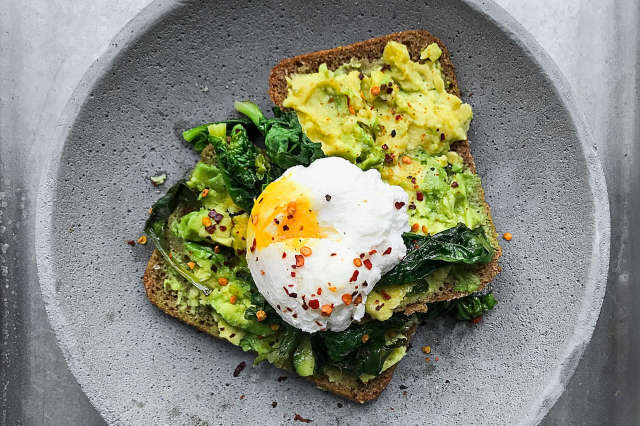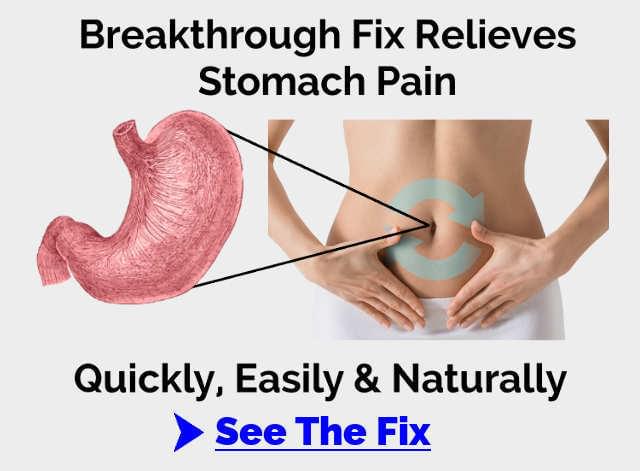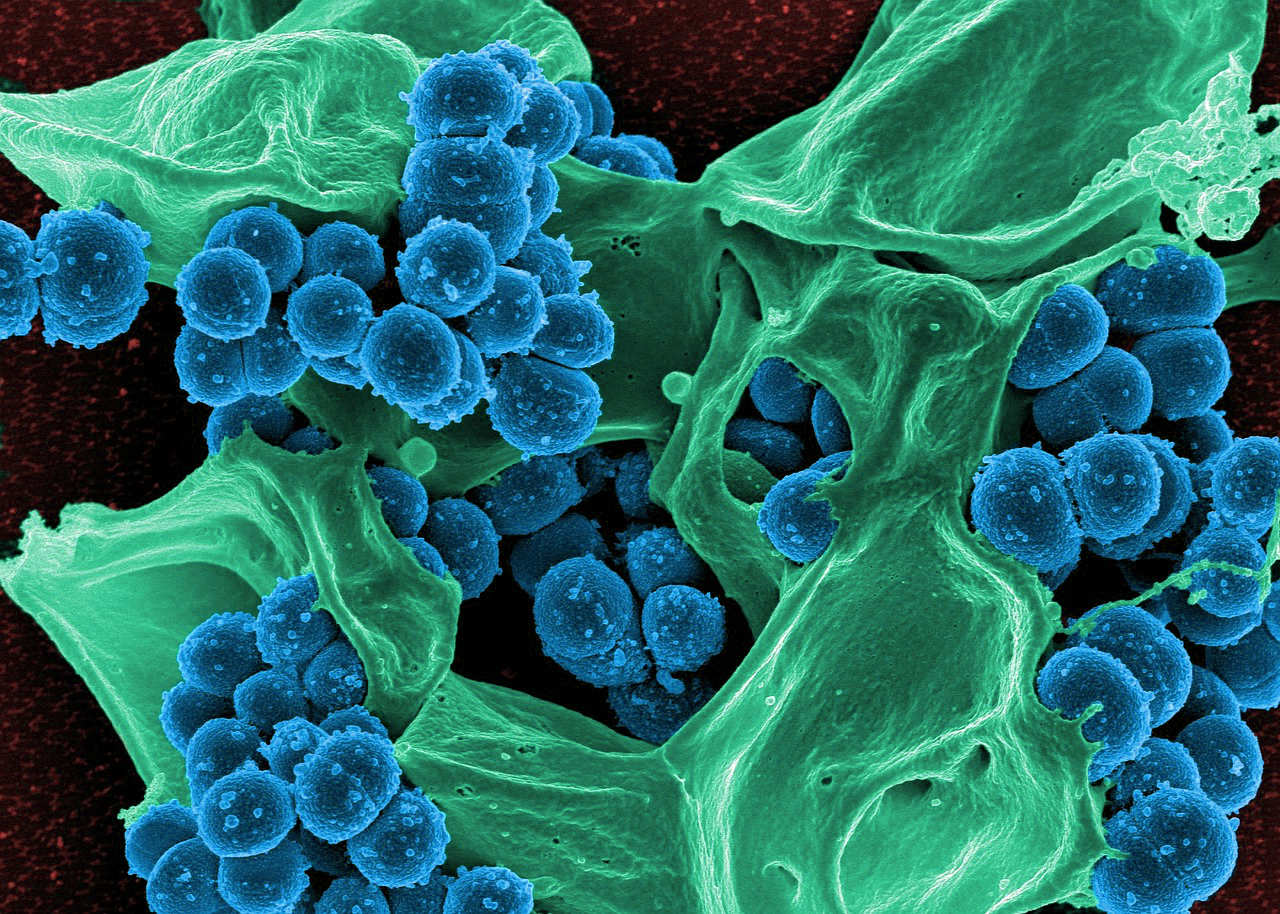
The Best Diet for IBS
Which Foods You Should Eat—And Which Ones You’ll Want to Avoid—After a Diagnosis of Irritable Bowel Syndrome
CUSTOM JAVASCRIPT / HTML
Discovering you have irritable bowel syndrome can be depressing, in particular because the cause of IBS is unknown, and a cure doesn’t exist for it. However, if you suffer from irritable bowel syndrome, you have more control than you might think. By making lifestyle changes, particularly as they pertain to diet, you can reduce the symptoms of IBS.
Read on to learn what irritable bowel syndrome is, how to eat after an IBS diagnosis, and what lifestyle changes you can make to reduce symptoms of the disorder.
What Is Irritable Bowel Syndrome?

Irritable bowel syndrome, or IBS, is a problem that affects the large intestine, sometimes causing cramping, bloating, and changes in bowel habits. While the condition doesn’t actually harm the intestines, IBS sufferers experience discomfort.
Unfortunately, although nobody knows what causes IBS, according to the Mayo Clinic, there are certain factors that seem to play a role in the condition:
- Muscle Contractions in the Intestines: As food moves through the digestive tract, muscles contract. Long and strong contractions can cause gas, bloating, and diarrhea. Weak contractions, on the other hand, slow food’s passage, causing hard, dry stools.
- Nervous System: Abnormalities in the nervous system can cause the body to overreact to normally occurring changes in the digestive process. When this occurs, people can experience pain, diarrhea, or constipation.
- Inflammation: There are some people with IBS who have a higher number of immune-system cells in their intestines. Unfortunately, this condition is associated with pain and diarrhea.
-
Infection: People occasionally develop IBS after a severe case of diarrhea that’s been caused by a virus or bacteria. Additionally, IBS may also be associated with an overgrowth of bacteria in the intestines.
-
Changes in Gut Bacteria: Your intestines contain microflora or “good” bacteria. Research shows that people with IBS might have microflora that’s different from healthy people.
Because doctors don’t know definitively what causes IBS, the condition will require you to do some detective work.
Putting Your Sherlock Holmes Cap On
Unfortunately, there is no one diet that works for every person with IBS. For that reason, you’ll need to become a bit of a sleuth, discovering by trial-and-error how your body reacts to certain foods.
Keep a Food Journal
One of the best ways to determine how your body responds to specific foods is to use a food journal and start tracking all the foods you eat. You’ll want to enter everything you eat or drink, the quantity you consumed, and how it was prepared.
Don’t forget to write down things like gum, cigarettes, coffee, and hard candies. Even the smallest items can trigger a gut reaction, so make sure you record it all. Sugar-free gum, for instance, contains the sweetener sorbitol which can cause gas to form in the colon.
“Someone who is chewing a lot of gum and having IBS symptoms may find it [sic] goes away if they stop chewing,” says Dr. Jonathan P. Kushner, director of the Digestive Disease Center at the University of Cincinnati.
In addition to tracking your intake, you’ll also want to write down any IBS symptoms that occur. So, keep a record of what you were doing, which symptoms you experienced, the time they occurred, and how long it was since you last ate or drank anything.
Analyze the Data
After you’ve collected a week or two of material, it’s time to analyze the information. Take a look at your good and bad days and see if you can find any patterns.
Ideally, you’ll find IBS symptoms you can associate with a specific food or food group. Once you do, you’ll want to alter your diet to see if symptoms improve
Eliminate Suspected Trigger Foods
*As with any medical advice found online, you’ll want to consult your doctor first. Not everyone is a good candidate for an elimination diet.
After identifying the foods you suspect may be causing your IBS symptoms, you’ll want to eliminate all of them from your diet and see if you feel markedly better. If you do, you can then begin adding foods back one by one, to see if your symptoms return.
Although this approach can be tedious, doctors can’t pinpoint for you which foods will cause IBS symptoms. There are, however, some commonly known IBS triggers.

IBS Trigger Foods
Different foods trigger different IBS symptoms. For example, coffee may contribute to constipation problems, whereas the raisins you eat can lead to gas and bloating.
IBS Constipation Triggers
For instance, if you suffer chronic constipation, it’s probably a good idea to reduce your consumption of foods that can make constipation worse like:
• Breads and cereals made with refined (not whole) grains
• Processed foods, like cookies and chips
• Coffee, carbonated beverages, and alcohol
• High protein diets
• Dairy products, especially cheese

IBS Bloating and Gas Triggers
You’d probably be surprised by many of the common foods that cause gas and bloating. While, of course, everyone knows beans are a culprit, did you know that bagels are too? Other foods you’ll want to avoid include:
• Cabbage
• Cauliflower
• Broccoli
• Lentils
• Brussels sprouts
• Raisins
• Onions
• Legumes (like peas, peanuts, and soybeans)
To reduce gas and bloat, WebMD suggests that you:
• Get more fiber. While that would seem to increase gassiness, the type and amount of fiber matters. For instance, methylcellulose and polycarbophil are two types of fibers that seem to reduce gas, whereas insoluble fiber increases it. Remember too that you’ll want to add more fiber gradually, giving your body time to adjust.
• Try an over-the-counter medication, like one for lactose intolerance or gas relief.
• Use antibiotics and/or probiotics. Antibiotics can help, possibly because they reduce gas-producing gut bacteria. Probiotics can be useful because they add “good” bacteria to your digestive system, restoring its balance. Studies have shown probiotics to be promising in treating this condition, and unlike antibiotics, probiotics can easily be purchased online—no prescription required.
• Go on a FODMAPs diet. Some carbs, called FODMAPs, aggravate IBS symptoms. Avoiding foods that are high in FODMAPs can help.

The FODMAPs Diet
FODMAPs stands for fermentable oligo-, di-, monosaccharides, and polyols. These scientific terms refer to groups of carbs that trigger uncomfortable digestive symptoms.
Research has shown that by following a diet low in FODMAPs, 70% of IBS sufferers see an improvement in their symptoms. However, for some folks, a low FODMAPs diet can do more harm than good, so talk to your doctor before deciding on your own to start following one.
According to Medical News Today, foods to avoid on a FODMAPs diet include these high FODMAPs foods:
- Vegetables: Garlic, asparagus, mushrooms, onions, shallots, and scallions
- Fruits: Blackberries, watermelon, prunes, peaches, dates, and avocados
- Meats: Sausages, breaded meats, battered meats, meats served with garlic or onion-based sauces
-
Fish: Breaded fish, battered fish, fish served with garlic or onion-based sauces
-
Fats: Almonds, cashews, and pistachios
-
Starches, Cereals, and Grains: Beans, lentils, wheat and gluten-based bread, rye, muffins, pastries, and pasta
While that list seems pretty comprehensive, there are still plenty of foods you’ll be able to enjoy after an IBS diagnosis.
The following foods, for instance, are low in FODMAPs, and as such, you can eat them freely:
- Vegetables: Lettuces, chive, cucumber, fennel, eggplant, broccoli, and baby spinach
- Fruits: Blueberries, raspberries, strawberries, pineapple, grapes, and kiwi
- Meats: Chicken, beef, turkey, cold cuts, and lamb
-
Fish: Crab, lobster, salmon, tuna, and shrimp
-
Fats: Oils, seeds, butter, peanuts, and walnuts
-
Starches, Cereals, and Grains: Potatoes, gluten-free bread, quinoa, brown rice, tortilla chips, and popcorn
IBS Diet Tips for When You’re Away from Home
Trying to manage your diet when you’re in your own home can be hard enough. Things get even more challenging if you’re at a restaurant or dinner party.
However, you’re not without options. For instance, the GI Society recommends that when you’re away from home, you choose foods similar to what you’d eat if you were at home.
Additionally, they suggest ordering sauces and dressings on the side, avoiding stuff that’s fried, asking for limited spices, and passing on oil-heavy foods. While you can still enjoy dessert, they recommend having just a small portion. You’ll also want to avoid overeating while you’re out.
If you’re at a friend’s party, you can let them know your dietary preferences. However, if those preferences can’t be accommodated, stick to safe foods and only have a small amount of trigger foods. You can always eat light while you’re out and have something more filling once you return home.
Lifestyle Changes Can Also Improve IBS Symptoms
We’ve spent a lot of time talking about the dietary changes you can make to control the symptoms of IBS. Still, you’re probably wondering if there’s anything else you can do to feel better. The good news is that there is.
For instance, according to the Mayo Clinic, you may find some of these lifestyle changes helpful in reducing symptoms of IBS:
- Take Probiotics: As mentioned earlier, probiotics are “good” bacteria that normally live in the intestines. Recent studies suggest they can alleviate common IBS symptoms, like abdominal pain, bloating, and diarrhea.
- Just be sure to look for a high-quality probiotic supplement that contains Lactobacillus strains (such as L. acidophilus, L. plantarum) and/or Bifidobacterium strains (such as B. infantis , B. longum).
- Gut Restore Ultimate, for instance, contains these strains, as well as eight others that support digestive health and offer immune support.
- Eat At Regular Times: Eating meals at the same time every day will get your body on a regular schedule, helping to regulate bowel function.
- Exercise Regularly: Ongoing activity not only alleviates stress and depression, but it also stimulates normal contractions of the intestines.
-
Fish: Crab, lobster, salmon, tuna, and shrimp
-
Reduce Stress: There’s a strong correlation between stress and IBS symptoms. Take steps to reduce stress in your life by practicing yoga, meditating, reading, or getting a massage.
-
Try Peppermint: Peppermint oil provides a natural way to relax muscles in the intestines, helping those who are experiencing constipation or diarrhea. If you don’t tolerate peppermint well, you can substitute a chamomile-pectin combination for it.
-
Use Hypnosis: Several studies support the long-term effectiveness of hypnosis for IBS, reports the Mayo Clinic. During hypnosis, a trained professional will teach you how to get in a mindful state, then guide you in relaxing your abdominal muscles. Hypnotic training like this may help reduce abdominal pain and bloating.
In Conclusion
FB Comments Will Be Here (placeholder)

CUSTOM JAVASCRIPT / HTML
Related Content
The information presented on this website is not intended as specific medical advice and is not a substitute for professional treatment or diagnosis. These statements have not been evaluated by the Food and Drug Administration. This product is not intended to diagnose, treat, cure, or prevent any disease.
*Disclaimer: Results may vary.
© COPYRIGHT Symple Nature LLC. ALL RIGHTS RESERVED.




